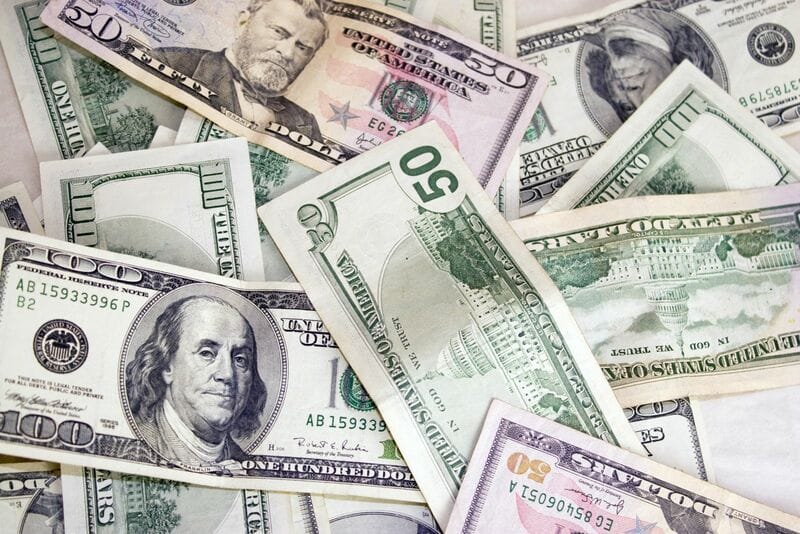
The dollar index (DXY00) Wednesday rose +0.07% and posted a new 5-1/2 month high. The dollar recovered from overnight losses and moved slightly higher as T-note yields climbed on the stronger-than-expected Aug ISM services report. Also, hawkish comments from Boston Fed President Collins supported the dollar. In addition, Chinese economic concerns weighed on the yuan, which fell to a 10-month low against the dollar Wednesday.
U.S. economic news Wednesday supported the dollar after the Aug ISM services index unexpectedly rose +1.8 to a 6-month high of 54.5, stronger than expectations of a decline to 52.5. Also, the July trade deficit widened to -$65.0 billion from -$63.7 billion in June, a smaller deficit than expectations of -$68.0 billion.
The Fed Beige Book was neutral for the dollar as it said U.S. economic activity was modest during July and August, and most districts said price growth slowed overall. Also, job growth was subdued across the U.S. during the survey period.
Comments Wednesday from Boston Fed President Collins were slightly hawkish and supportive for the dollar when she said it's "too early" to say if inflation is on a sustained path to 2% and further tightening may be warranted depending on the data. She added that the Fed will "need to hold rates at restrictive levels for some time" as while demand is moderating, it continues to outpace supply, adding to price pressures.
EUR/USD (^EURUSD) Wednesday rose +0.03%. The euro Wednesday recovered from a 2-3/4 month low and posted modest gains on hawkish ECB comments after ECB Governing Council member said the markets are underplaying the risks of an ECB rate hike next week, and Governing Council member Kazimir said a September rate hike is preferable to a later increase. EUR/USD Wednesday initially moved lower as weakness in Eurozone economic news weighed on the euro after Eurozone July retail sales fell for the first time in four months and after German Jul factory orders fell by the most in 3-1/4 years.
Eurozone July retail sales fell -0.2% m/m, right on expectations and the first decline in four months.
German July factory orders fell -11.7% m/m, weaker than expectations of -4.3% m/m and the biggest decline in 3-1/4 years.
Hawkish ECB comments Wednesday were bullish for EUR/USD. ECB Governing Council member Kazimir said the ECB needs to raise interest rates one more time to make sure inflation returns to 2%, and a September rate hike is "preferable" to a later increase. Also, ECB Governing Council member Knot said investors betting against an ECB rate hike next week are "maybe" underestimating the likelihood of it happening.
USD/JPY (^USDJPY) Wednesday fell -0.01%. The yen Wednesday recovered from a 10-month low against the dollar and posted slight gains. Comments from Japan’s top currency official, Masato Kanda, sparked short covering in the yen when he said he wouldn’t rule out any options if forex moves continue. The yen gave up nearly all of its gains after T-note yields rose.
October gold (GCV3) Wednesday closed -8.50 (-0.44%), and December silver (SIZ23) closed -0.370 (-1.55%). Precious metals prices on Wednesday closed moderately lower, with gold dropping to a 1-week low and silver falling to a 2-week low. Wednesday's rally in the dollar index to a 5-1/2 month high was bearish for metals. Also, rising global bond yields on Wednesday were negative for precious metals prices. In addition, hawkish central bank comments undercut precious metals when Boston Fed President Collins said it is "too early" to say if inflation is on a sustained path to 2% and further tightening may be warranted, and ECB Governing Council member Kazimir said the ECB needs to raise interest rates one more time to make sure inflation returns to 2%.
On the date of publication, Rich Asplund did not have (either directly or indirectly) positions in any of the securities mentioned in this article. All information and data in this article is solely for informational purposes. For more information please view the Barchart Disclosure Policy here.






